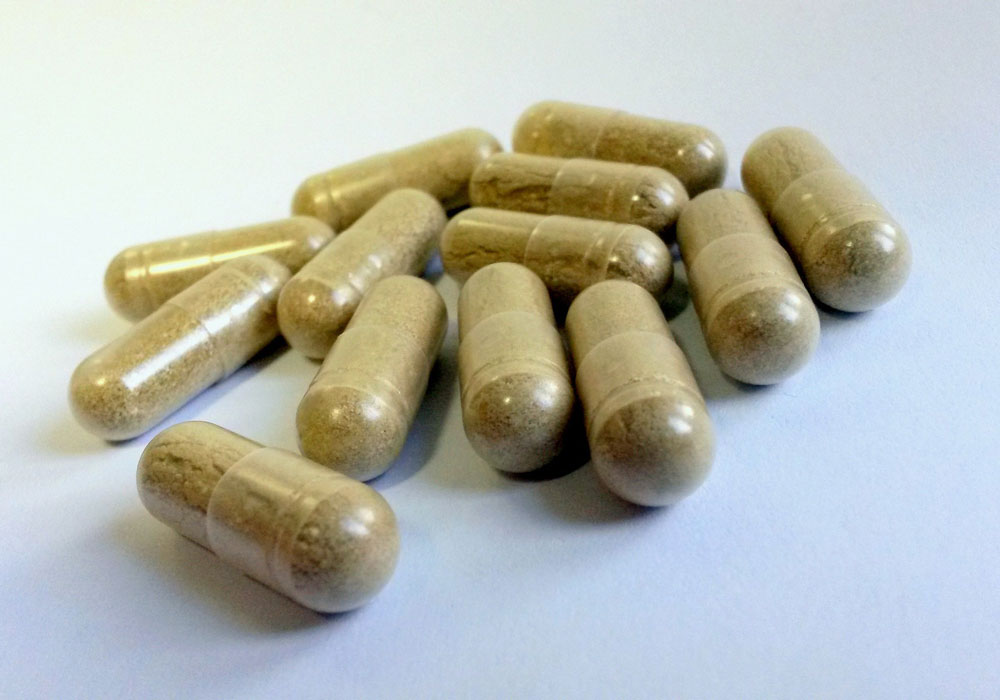By Jyothirmai Gubili, MS, K. Simon Yeung, Pharm D, Lac, and Susan Schwartz, RN, CBCN®
Many Americans use dietary supplements, including herbal products, in the belief that they are natural and safe. Patients with cancer use them often to enhance the effects or to reduce the adverse reactions of cancer treatments. However, few herbs have been thoroughly studied in humans. Therefore, their interactions with prescription drugs and the clinical relevance, remain undetermined. These interactions could be pharmacokinetic in nature when an herb alters the absorption, metabolism, or excretion of other drugs, or pharmacodynamic in which it affects the mechanism of action of other drugs when consumed together. Following are a few relevant herb-drug interactions encountered in the oncology setting.
- Herbs that induce or inhibit cytochrome (CYP) P450 enzymes or P-glycoprotein (P-gp) transporters may reduce the efficacy, or increase the side effects of chemotherapeutic agents that are substrates. For example, St. John’s wort can reduce the active metabolite of irinotecan in the serum by 40% when used concurrently. Commonly used herbs such as ginkgo, ginseng, green tea, and turmeric also modulate CYP 450 and P-gp. Many tyrosine kinase inhibitors used in cancer treatment are prone to similar interactions that would require dosage adjustment.
- Herbs that are phytoestrogens such as red clover and soy are often used to treat menopausal symptoms like hot flashes. Some studies suggest that they can reduce the risk or recurrence of breast cancer by modulating estrogen receptors. However, they may also stimulate tumor growth. Genistein, a phytoestrogenic isoflavone found in soy, can interfere with the action of tamoxifen and aromatase inhibitors. Until definitive data become available, patients with hormone-sensitive cancers should avoid these herbs.
- Herbs that have blood-thinning effects can increase the risk of anticoagulant drugs that are employed to prevent deep vein thrombosis and pulmonary embolism in bedridden cancer patients. These drugs tend to have a narrow margin of safety and require careful monitoring for adverse effects. Herbs such as chamomile may enhance the effects of warfarin when used concurrently, resulting in increased risk of hemorrhage. Additionally, herbs such as garlic, ginger, and ginkgo are thought to exert similar effects because of their antiplatelet property. Therefore, concomitant use of these herbs with anticoagulant, antiplatelet, and antithrombotic agents is contraindicated.
The past few decades have witnessed a dramatic increase in the use of herbal supplements, especially by patients with cancer. They often verbalize concerns about the safety of taking dietary supplements while receiving treatment. When reviewing their home medication list, patients are surprised to learn that certain supplements may interfere with their treatment or other drugs they are taking. Oncology nurses can provide patients with education and counseling about potential harmful side effects and drug interactions.
About Herbs, Botanicals, and Other Products, a resource Memorial Sloan-Kettering Cancer Center’s Integrative Medicine Service developed for both patients and healthcare professionals, provides clinically useful and unbiased information about herbs and other dietary supplements. The database currently has 281 entries with a clinical summary, mechanism of action, adverse effects, herb-drug interactions, and potential benefits.






